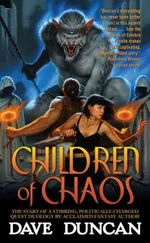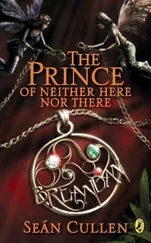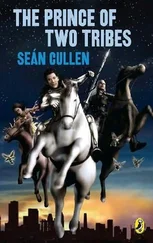Eric spent the night at Dylan’s. That surprised Tom and Sue Klebold—they had not seen Eric in six months. The boys came in after 10:00 P.M. Dylan was nervous—Tom could hear it in his voice. His pitch was a little off; Tom described it later as “tight.” He made a mental note to talk to Dylan about it. He never got to it.
Eric came with a great big duffel bag, stuffed with something. It was oversized and bulky and he was having trouble carrying it. Tom assumed it was a computer. It was a weapons cache, for a final fashion show. They filmed it, of course—the only scene from the Basement Tapes shot at Dylan’s. Eric directed, as usual. Dylan strapped on gear: harness, ammo pouches… when he got to the knives, he joked about a certain sophomore’s head impaled on one. He slung the TEC-9 over his shoulder and slid the shotgun into the cargo pocket on his pants. Then he strapped it in with the webbing to secure it into place.
He needed his backpack. Dylan went digging for it in the closet and ran into his tux, hanging up for prom tomorrow night. Whatever. He turned to the camera to rub it in: “Robyn. I didn’t really want to go to prom. But since I’m going to be dying, I thought I might do something cool.” Plus, he said his parents were paying for it.
Dylan pulled his trench coat on, struck a pose in the mirror. This was his entrance outfit—it was going to be so badass. It looked lumpy. “I’m fat on this side,” he complained.
The whole point was impressing people. Details mattered. Wardrobe, staging, atmospherics, audio, pyrotechnics, action, suspense, timing, irony, foreshadowing—all the cinematic elements were important. And for the local audience, they were adding aroma: sulfur, burning flesh, and fear.
Dylan tried his next pose, and that was a problem, too. His very first move, once the scene got rolling, was to snatch the TEC out of its sling and toss it to his firing hand in a single dramatic motion. His trench coat got in the way. He tried it again. Lame. Faster , Eric said. He was visibly annoyed. He had practiced every move to perfection. Dylan was trying all this shit for the first time.
____
Eric left around 9:00 A.M., without the duffel bag. The boys may have stayed up all night. Tom and Sue noticed that Dylan’s bed didn’t look slept in.
____
Saturday was all about prom. Dylan came home at 3:00 A.M., and Sue was up to greet him. How was it? she asked. Dylan showed her a schnapps flask. He told her he’d only drunk a little. The rest of the group was going to breakfast, he said. He was tired. He was done.
He slept it off most of the next day.
____
Monday morning, around 9 o’clock, Dylan grabbed his spiral notebook and drew the top of a giant numeral 1. He drew the bottom of it at the foot of the page, with a big gap in between for copy: “1. One day. One is the beginning or the end. Hahaha, rescued, yet there. About 26.5 hours from now the judgment will begin. Difficult, but not impossible, necessary, nervewracking & fun.”
It was interesting, he said, knowing he was going to die. Everything had a touch of triviality. Calculus really did turn out to have no practical application in his life.
The last word is hard to read, but it appears to be “Fickt,” German slang for “fucked.”
____
In his last twenty-four hours, Dylan got active. He drew up full-page sketches of himself in body armor: front and back displays geared up with explosives. One of the last pages included a brief schedule for NBK, now pushed back to Tuesday. It ended like this: “When first bombs go off, attack. have fun!”
Monday night, the boys went out to dinner with friends. They went to Outback Steakhouse, Eric’s favorite restaurant. Dylan had some coupons, so they could economize. His mom asked how it was when he got home. Good, he said. They’d had a nice time. He’d had himself a nice steak.
Eric got the final two boxes of ammo from Mark Manes, and said he might go shooting tomorrow. He didn’t get a lot of sleep that night, if any. He was still awake past 2:00 A.M., three hours before his wake-up call. He had a few reflections to add to his audio memoirs. He spoke into a microcassette recorder, indicating that there were fewer than nine hours to go. “People will die because of me,” Eric said. “It will be a day that will be remembered forever.”
Tuesday morning, the boys rose early. Tom and Sue heard Dylan leave around 5:15. They assumed he was on his way to bowling class. They did not see him.
“Bye,” he called out.
Then they heard the door shut.
Eric left his microcassette on the kitchen counter. It was an old tape, reused, and someone had labeled it “Nixon” somewhere along the line. The meaning of that label perplexed observers for years to come. It meant nothing.
51. Two Hurdles

The fifth-anniversary commemoration drew a smaller audience than expected. The crowds had grown progressively smaller each year, but the school foresaw a bigger bump for this milestone. Nearly everyone was pleased by the light turnout. It meant people had moved on.
Many survivors began to think in terms of how many events were left to slog through. Only two remained now: the ten-year and the dedication of the memorial. Surely they wouldn’t have to come back in twenty.
There were always a lot of the same faces, but Anne Marie Hochhalter showed up for the first time this year.
It had been a rough road there.
After her mother’s suicide, Anne Marie finished out senior year and made a go at community college. She didn’t like it much. She traveled to North Carolina for electrical stimulation therapy. Doctors hoped it might lead her to walk again. It failed.
The commotion over Columbine never seemed to end. Two years out, her dad moved the family way out to the country to get some peace. They went stir-crazy out there.
Anne Marie dropped out of school. She had no job. She was miserable. Doctors kept trying fresh approaches on her spine. Nothing worked. She wallowed in it for a while, then she had enough.
She went back to school—a four-year college, majoring in business. She bought a house with donations and equipped it for her wheelchair. Life began to feel good.
“I wish I could tell you I had an epiphany, but it was gradual,” she said. The turnaround came when she let go of the dream of walking again. “I finally accepted that I was confined to a wheelchair. Once I did that, I was free to move on with my life. It was very liberating.”
Her dad remarried and Anne Marie forgave her mother. She had struggled so long, and mental illness was so debilitating. “In her mind, she thought it was the best thing she could have done,” she said.
Anne Marie let go of her anger at the killers, too. “That’s counterproductive,” she said. “If you don’t forgive, you can’t move on.”
On the fifth anniversary, she returned to Columbine to share her hope.
____
Funding for the Clement Park memorial met unforeseen resistance. It was budgeted at $2.5 million, less than the library project, which the families had raised in four months. This one looked easy.
But by the time they started fund-raising in 2000, goodwill had been tapped out. They scaled back the project by a million in 2005. Still, they were not even close.
Bill Clinton had taken a personal interest in the massacre as president. He returned to Jeffco in July 2004 to rev up support. He brought in $300,000. That was a big boost, but momentum fizzled again.
____
Before he retired, Supervisory Special Agent Fuselier requested permission from the head of his branch to share his analysis. His boss agreed. Other experts brought in by the FBI cooperated as well, including Dr. Hare, Dr. Frank Ochberg, and others who spoke off the record. On the fifth anniversary of the massacre, a summary of their analysis was published.
Читать дальше








